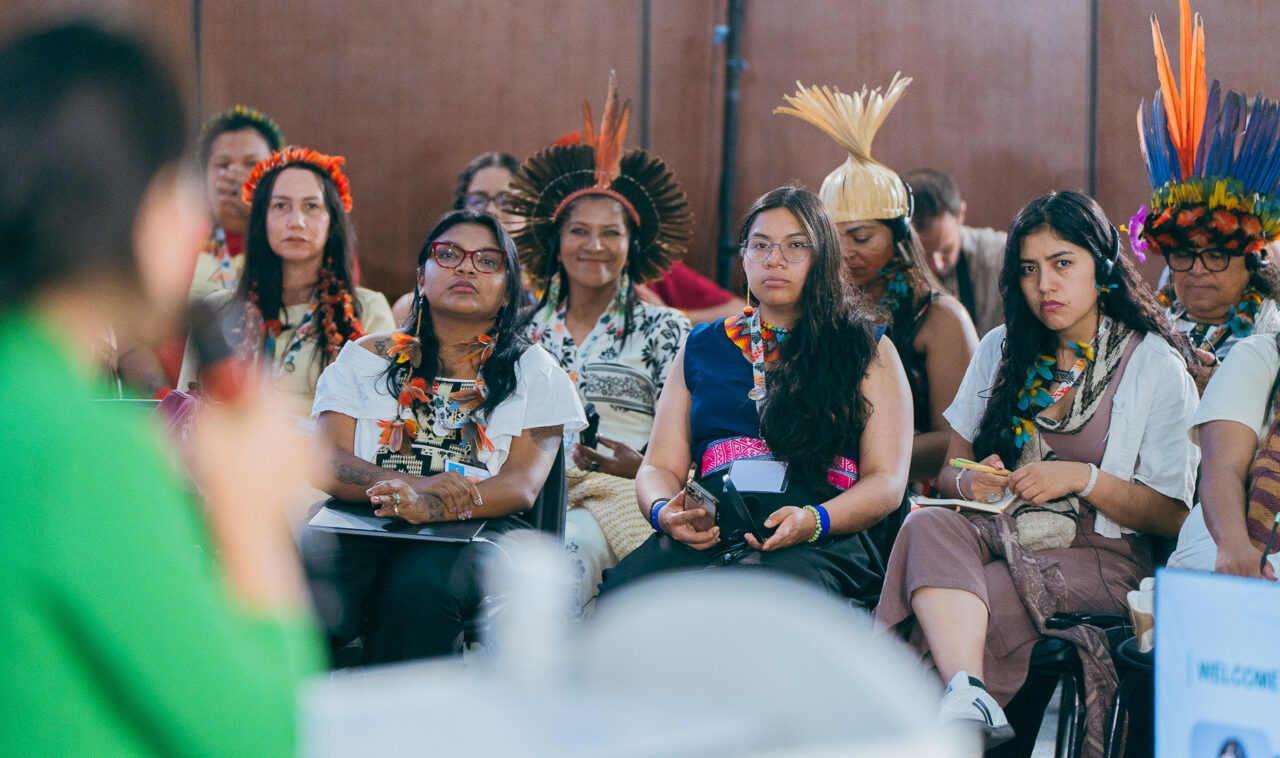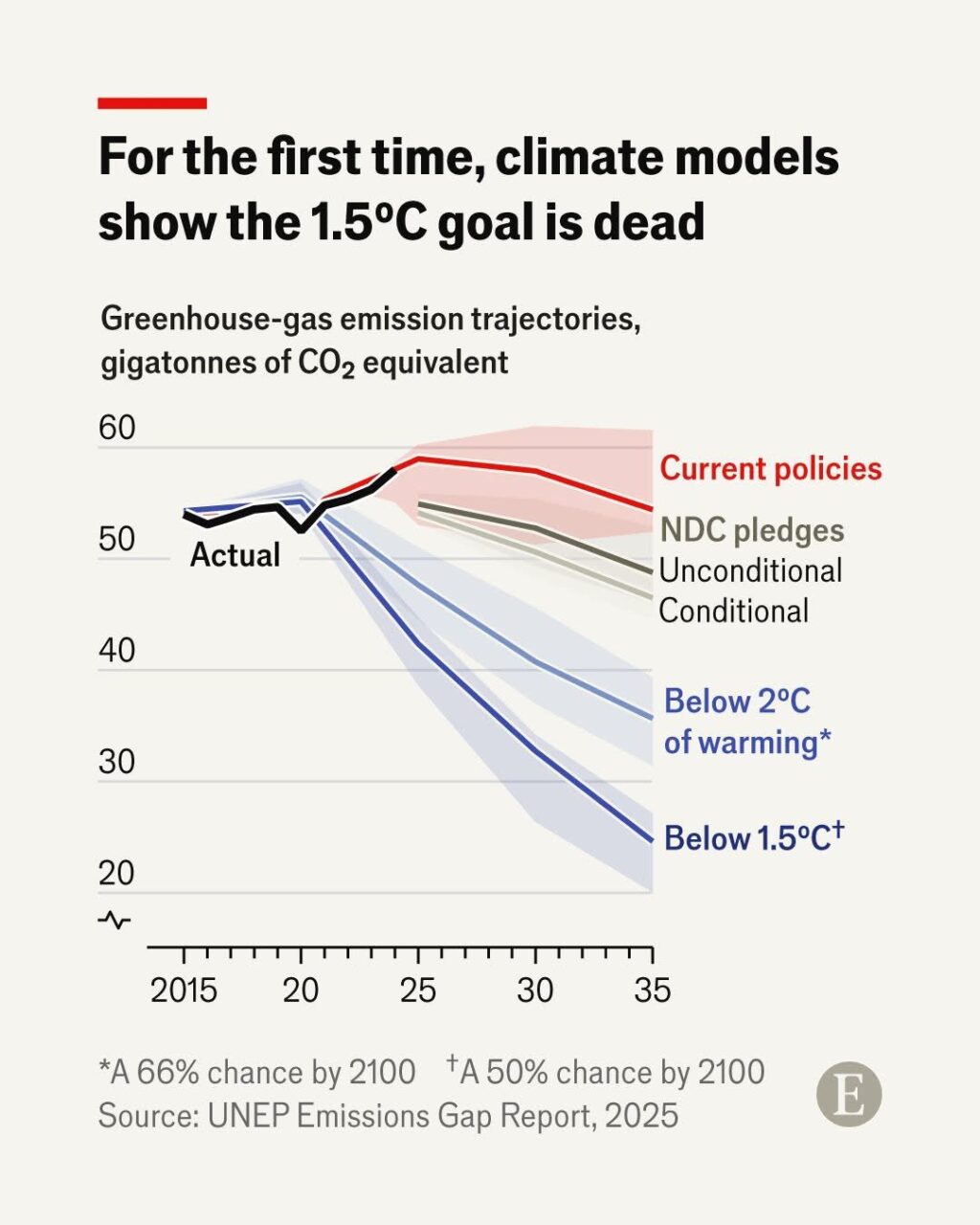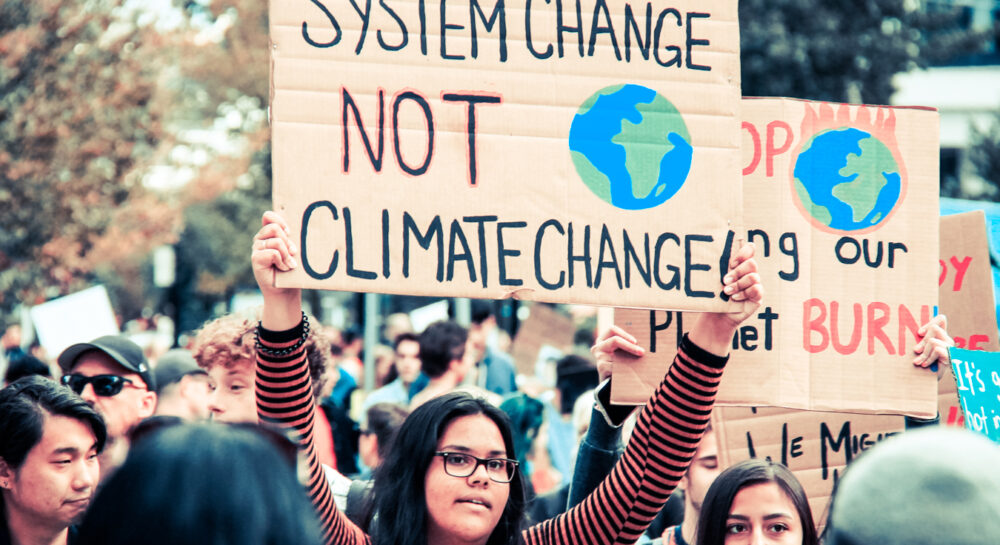The road to Belem was no doubt paved with good intentions, but the latest climate jamboree in Brazil has once again come up empty handed. Capitalism is incapable of solving the climate crisis, argues Marcus Strom. We need a radical republican government with an emergency working class action plan.

Photo: Aljun Alvarez and Kenny Garcia for the Climate Champions Team. (CC 4.0)
The Economist – hardly a revolutionary rag – has delivered a blunt verdict on the Paris Agreement: the 1.5 degree goal is dead. Attempts by governments to limit global warming to 1.5 degrees above pre-industrial levels, have failed, and even the theoretical routes to limiting the relentless rise of global temperatures are now ruled out.
Modelling in the latest Emissions Gap Report of the UN Environment Programme (UNEP) shows that current policies are sending emissions on a trajectory entirely incompatible with these targets. The graph accompanying the report makes the reality unmistakable: every pathway that stays below 1.5 degrees diverges sharply from the world we are actually living in.

This should have cast a long shadow over COP30 in Brazil. Instead, the summit has been another festival of delusion. The final communique, while giving lip service to the need to transition away from fossil fuels, agreed on no plan to actually do this.
A climate negotiator from Panama, Juan Carlos Monterrey Gomez, said: “I will be brutally honest: the COP and the UN system are not working for you. They have never really worked for you. And today they are failing you at a historic scale.”
The United States – the world’s largest historic emitter – isn’t even pretending anymore, choosing to boycott COP30 altogether. Washington’s climate diplomacy has always been a mix of sanctimony and sabotage, but this open snub signals that the era of even its symbolic leadership is finished. The supposed “indispensable nation” decided it wasn’t even necessary to attend.
But the truth is that every COP has been a bureaucrat’s fantasy – a ritualised gathering whose outcomes are inversely proportional to the urgency of the crisis. Instead, these summits have become an annual carnival of hypocrisy and hot air, designed more to manage expectations than to reduce emissions. They produce communiques, not change.
The Australian media’s obsession with the horse race of whether Turkiye or Australia would host COP31 allowed them to ignore the fact whoever the host is, nothing serious will be done to address runaway global warming. To do so would require looking reality in the face and discovering the real culprit is global capitalism.
Liberals stuck between Stone Age and boardroom
Australia’s political class offers no exception. The Liberal Party’s retreat from even the shallow promise of net zero shows they remain stuck somewhere between the Stone Age and the boardrooms of the mining industry. But net zero itself is a con – a technocratic mirage that allows governments and corporations to keep polluting while outsourcing “offsets” to accountants, consultants and speculative technologies.
As ever the Global South and Indigenous communities are often the dumping grounds and scapegoats for the inaction of the global elite.
The Albanese government’s climate targets, though pitched as ambitious, fall well short of what’s required. Setting a target of 62-70% reduction on 2005 greenhouse gas emissions is, according to the Climate Council, too weak. The Environment Minister, Chirs Bowen, seemed more obsessed with bureaucratic laurels of who will be hosting what function at COP31 than delivering the change we really need.
In choosing a ‘safe’ middle ground (that is actually dangerous for the environment), Labor appears determined to choose a pathway that is both insufficient and practically impossible under its own business-as-usual framework. More LNG expansion, more coal approvals, more deference to the gas giants: if this is climate leadership, then the planet is in serious trouble.
The Greens, for their part, continue to imagine that capitalism can be regulated into ecological harmony, a “utopian capitalism”. As murdered Brazilian environmentalist Chico Mendes pointed out in the 1980s, “ecology without class struggle is just gardening”.
Without confronting who controls production, who profits from environmental destruction and who will pay for the transition to renewables, green politics becomes little more than moralism.
The reality, as outlined by Marx more than 150 years ago, is that capitalism treats human labour power and nature as ‘inputs’ for its relentless drive for expansion at all costs.
COP30, then, simply dramatises the obvious: capitalism cannot solve the climate crisis. A system organised around private accumulation and endless growth is structurally incapable of restoring ecological balance. You cannot have both permanent economic expansion and a stable biosphere.
Emergency plan of action needed
If we are serious – not symbolically, but materially – about preventing climate collapse, we must fight for a radically different kind of society and governance. In Australia, that means a democratic republican government capable of implementing an emergency plan, globally coordinated. We can no longer be beholden to fossil fuel interests or the whims of capital.
Such a program could include:
- A massive public-led transition to renewable energy, building infrastructure at the scale required.
- A rapid phase-out of fossil fuels – not decades from now, but urgently.
- A just transition with workers in resource sector guaranteed ongoing employment and retraining in the renewables sector.
- Nationalisation of minerals and energy under workers’ control.
- Agricultural diversification to prevent land degradation, and an end to farming on marginal lands, with compensation for small farmers.
- Expansion of national parks under democratic control, including with First Nations stewardship.
- Major investment in science, conservation and species rehabilitation.
- Measures to stop ocean pollution and restore fisheries.
- A shift to a circular economy that reduces extraction and waste.
- Free, expanded public transport to slash emissions from cars.
- Heavy fines for major polluters – and the criminalisation of corporate environmental destruction.
These are not technocratic tweaks. They require democratic planning, public ownership and the political power of a united working class.
COP30 shows once again that the ruling class has no plan – only delay, distraction and denial. The task falls to us: to build a movement capable of replacing a system driving us toward catastrophe with one organised for human need and ecological survival.

